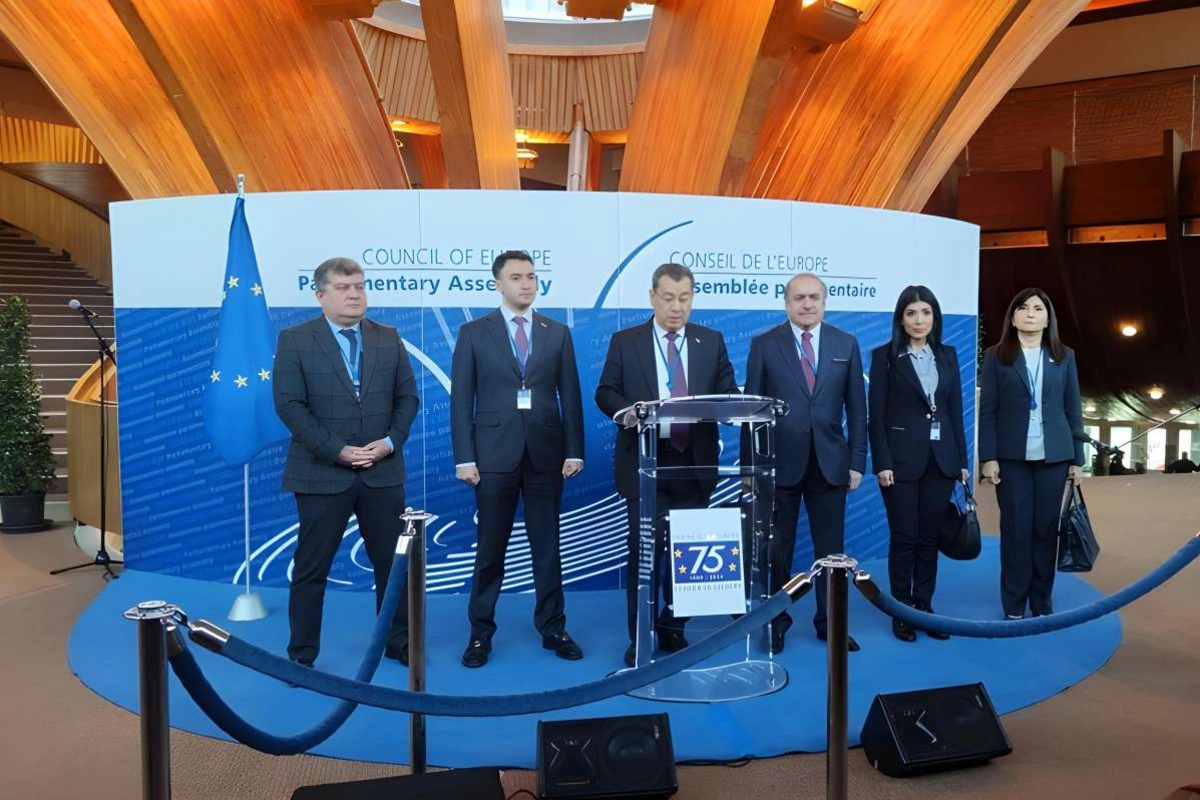
Azerbaijan's delegation from PACE, the Parliament Assembly of the Council of Europe, has withdrawn from the organization citing "racism, Azerbaijanophobia, and Islamophobia."
Image: meclis.gov.az
In the latest series of political aftershocks reverberating from Azerbaijan’s full reclamation of Karabakh in September, PACE tabled a motion to challenge the credentials of the Azerbaijani delegation members. Delegation members are generally ratified annually without much fuss, but at the winter session on 24 January, the Azerbaijani members’ status was questioned in a

Seen from Baku’s perspective, this was a piece of political theatre sprung deliberately suddenly with minimal notice to allow a carefully structured defence. It had started with a challenge issued just two days earlier (22 January) by German MP Frank Schwabe of the SPD parliamentary group, a move ratified a day later by PACE's Monitoring Committee, which recommended that the Azerbaijanis’ credentials not be approved. Rather than face what they dubbed the "biased political decision" of being ejected, the Azerbaijani delegates chose instead to withdraw their candidacy.
In reality, the move was not entirely unexpected. Back in October, the assembly had called on Baku to “prove its goodwill” towards the Armenian population of Karabakh, suggesting that if this were not seen to be the case, PACE would have no alternative other than to challenge Azerbaijan’s delegates’ credentials. The resolution was further bolstered by accusations that Azerbaijan had failed to cooperate over meetings with people considered by the assembly to be political prisoners and by the decision not to have PACE observers oversee Azerbaijan’s snap presidential election scheduled for this coming February.
However, from Baku’s point of view, PACE has been consistently anti-Azerbaijani. Veiled accusations in PACE’s resolution 25-17 suggested that the Karabakh Armenians’ decision to leave en masse could be almost equated to a form of ethnic cleansing. Such a charge stings, particularly for Azerbaijan, whose own Karabakhi population were actually driven out of their territory in the 1990s, while Baku insists that it had systems in place to protect Karabakh Armenians in the wake of the September take-back. It thus sees PACE as guilty of double standards in its criticism and in being a less than even-handed force since then – cites that attitude as the reason for not inviting PACE observers.
“Make no mistake about it—Azerbaijan is not expelled from the council of Europe,” re-iterated Croatian MP


The next speaker, Ukraine’s Oleksiy Goncharenko, regretted the approach of the assembly, suggesting that the only place where such a decision would be celebrated was Moscow as another sign of “divisions in the free world.” “Has the situation got worse [since Azerbaijan joined PACE in 2001]?” he asked fellow delegates, underlining that in his opinion, it hadn’t— indeed quite the opposite, Baku moving towards a peace treaty with Armenia is “something we’ve all [been] praying for.” He went on to stress that, in his opinion, the Council of Europe should focus on achieving what every member wants, which is peace in the South Caucasus.
In the end the vote was carried 76 to 10 with four abstentions, Ukraine being one of 18 states that had zero delegates voting against Azerbaijan.
Share on social media